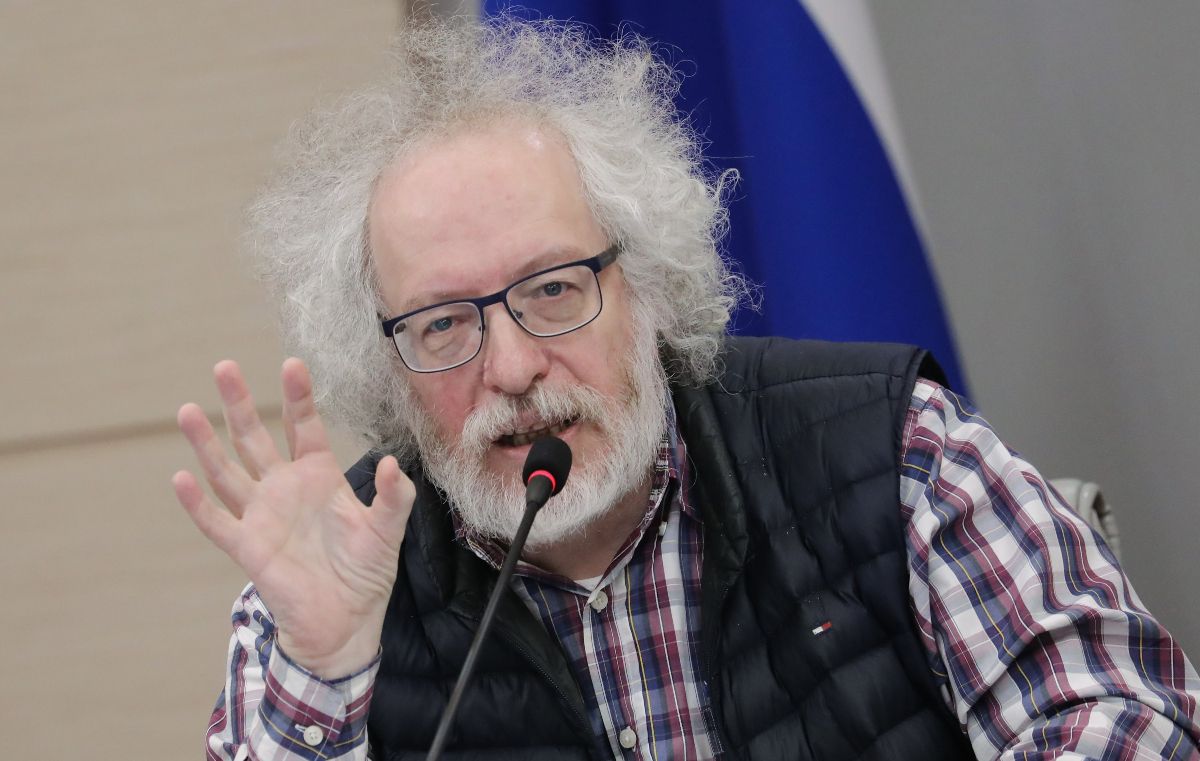
Team Navalny film about 1990s oligarchs divides Russia’s opposition
The 1990s were a turbulent period following the collapse of the Soviet Union — and 30 years later it remains the most controversial era in modern Russian history. The rapid democratization of society and the switch from a planned to a market economy was accompanied by poverty, rampant crime and the wholesale redistribution of state property into the hands of a few oligarchs close to power. In Russian society, the lingering sense of the “wild 90s” as a national trauma has been exploited by Putin-era propaganda, threatening a return to those chaotic times unless Russians staunchly support the “stability” of the current regime. At the same time, there is another widespread point of view of the era: one of an age of liberty, when people could speak and think freely after having thrown off the shackles of Soviet-era censorship.
What happened during this pivotal decade — the years after the collapse of the Soviet Union — is directly linked to the state of modern Russia today. Many prominent businessmen and active government officials cemented their positions at that time. Shortly before his death, Russian opposition leader Alexei Navalny accused the liberal elite of the era of paving the way for Vladimir Putin’s rise to power. Last week, his team released a documentary further developing that idea. The main narrator and ideologist was Maria Pevchikh, one of the leading figures in Navalny’s Anti-Corruption Foundation. Her narrative, while containing no new revelations, annoyed many members of the opposition.
- Team Navalny released the first episode of a new documentary series, titled “Traitors” last week (another two episodes should soon be released), in which they explain how oligarch Boris Berezovsky won control of the main Russian TV channel — at the time known as ORT, now Channel One. Berezovsky could not have taken control of such a key asset without money provided by fellow oligarch Roman Abramovich, best known as the owner of Chelsea Football Club. Abramovich, in turn, was vying to bring together two state-owned oil extraction and refinement enterprises. In exchange for the funding, Berezovsky persuaded Boris Yeltsin to approve Abramovich’s deal by threatening to use the power of ORT to sink his 1996 presidential election campaign if he did not agree. Yeltsin won the election, and within less than four years had named Putin as his successor.
- It is believed that Valentin Yumashev played an important role in Putin’s rise to power. He started out as a journalist and then got to know Yeltsin in the late 1980s. Yumashev was Yeltsin’s literary aide and worked in the presidential administration, heading it for a time. In 2001, after Yeltsin had left office, Yumashev married Yeltsin's daughter (now Tatyana Yumasheva). The pair were Yeltsin’s closest advisors before he resigned, a unit collectively known as “the Family”. Yumashev repeatedly told Yeltsin that Putin, his former subordinate and at the time head of the FSB, was the most suitable successor. Although as journalist Ilya Zhegulev wrote in his book, there wasn’t much competition at the time. “Here we have Putin — out of desperation,” a source in the presidential administration told Zhegulev. After Putin became president, Yumashev worked for him as an adviser on a voluntary basis.
- The Pevchikh film provides no new detail or revelations about this period. It is based largely on the memoirs of Alexander Korzhakov, Yeltsin's security chief, as well as transcripts of court hearings in the Berezovsky vs. Abramovich case. The oligarchs famously clashed in a London court in the early 1990s, with the court filings revealing the ins and outs of doing business in Russia at that time. Berezovsky had demanded $5.6 billion in compensation from Abramovich, who he claimed had forced him to sell his stake in two Russian companies at a cut-down price. The court threw out Berezovsky’s claims and ordered him to pay Abramovich’s costs. Less than a year after the verdict, Berezovsky committed suicide.
- As soon as it was released, the film faced almost unanimous criticism from Russia’s scattered opposition. It was accused of “smoothing over” a complex story, turning a blind eye to the historical context, sympathizing with the leftist agenda (in 1996, Yeltsin’s most dangerous opponent was Communist leader Gennady Zyuganov), rewriting history, producing propaganda and marginalizing the Russian opposition. Disgraced Russian oil tycoon Mikhail Khodorkovsky, who made his fortune in the period, said that the film left him “ideologically bewildered.” According to him, Pevchikh could have focused on more important issues of the era, such as the war against Chechen separatists or the internal political conflict of 1993 that led to tanks firing on the parliament building in Moscow.
- Few would disagree that it is necessary to dredge through difficult events of the past. Reviewing controversial historical periods is a generally accepted way of working through collective trauma, one that helps foster a consensus of what happened, and reduces the risk of a repeat. However, both the film and the reaction to it suggests that even in a part of society that is genuinely interested in having this conversation, common ground is still far away.
Why the world should care
On the day the film was released, Time magazine ran an interview with Yulia Navalnaya, who it named one of the 100 most influential people in the world. Following the death of her husband, Navalnaya is trying to take his place as the overall leader of the Russian opposition. The interview was headlined: “Putin is my enemy. The Revolution of Yulia Navalnaya.” One of her key beliefs is that Russian antiwar and opposition movements exist — and that they can be brought together. “As for uniting the opposition, the last demonstrations showed that it’s not hard to unite around a good, collective action. That is the main source of unity,” she said. The reaction of opposition bloggers to Pevchikh (who Navalnaya sees as the curator of effective international sanctions) once again casts doubt on that belief.




